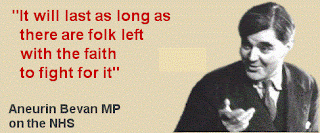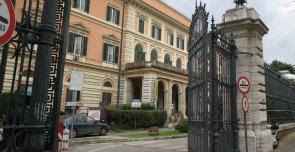 |
| Doctor's strike in Saskatchewan during the Medicare Crisis, 1962 (National Archives of Canada, PA-88485). |
July 1, 1962 was the scheduled date for implementation of Saskatchewan’s long-awaited public medical insurance plan. The “organized medical profession” in Saskatchewan, represented by the College of Physicians and Surgeons, was firmly against the plan, and a withdrawal of services took place on July 1.
Since the College of Medicine had a large clinical faculty, it is hardly surprising that the “doctors’ strike,” and the debates relating to medicare, had a direct impact on the College. There were conflicting reports about the extent of that impact, and how many College of Medicine doctors were supporting the strike. Dean R.W. Begg, was anxious that the College remain neutral in the dispute. The Dean also contacted other Canadian medical schools and made contingency plans to ensure that in the event of a “prolonged withdrawal of services” his students would be able to continue their studies.
One department that was affected was Social and Preventive Medicine. Samuel Wolfe, a professor in that department, had made trips to Britain to recruit doctors to practice in Saskatchewan under the medicare plan. In early July, Wolfe resigned from faculty and became one of the organizers of the Saskatoon Community Clinic. The new British doctors were key to the Clinic’s early development and survival.
The strike ended on July 23. The overall impact of the medicare crisis on the College of Medicine is difficult to assess. It is known that at least five full-time clinicians left because of the crisis. However, the number of applications for enrolment increased significantly after 1962. Samuel Wolfe and Robin Badgley (both originally in the Department of Social and Preventive Medicine) lamented an opportunity lost: “As a result of the medical school’s inability to tolerate differences of opinion on the medical care controversy, the opportunity was lost to assess the impact of the legislation critically and scientifically. The university, which should have taken the lead in assessing the impact of medicare on the health of the population and the quality of the medical services given by the doctors, and which should have been finding answers, did not even ask questions.”


.jpg)








.jpg)



.jpg)
